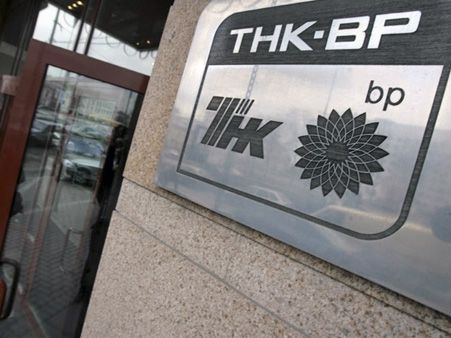
“Gross Expropriation” or a Softer Approach at Kovykta?
Publication: Eurasia Daily Monitor Volume: 7 Issue: 53
By:

The Russian government seems to envisage two options for disposing of TNK-BP’s giant Kovykta gas project in Siberia: coercive re-nationalization with compensation for the capital already invested, or without compensation. The state regulatory apparatus claims that the license holder is violating the Kovykta license terms. A three-year harassment campaign seems to be entering an endgame, pending a top-level decision about selecting a Russian state company to take over the project.
On March 17, Russia’s Natural Resources Minister Yuri Trutnev ruled out compensation to TNK-BP for the capital invested. “Receiving compensation after non-fulfillment of license terms is impermissible,” Trutnev stated. He would only allow something like a fire-sale of the property in place to a new owner, when this becomes known (Interfax, March 17).
Deputy Prime Minister Igor Sechin, however, recommends that the decision must “not involve a gross expropriation,” but rather take into account the investments already made at Kovykta. Sechin also suggests deferring a final decision until the gas market demand picture becomes clearer (Interfax, March 11, 17).
Located in eastern Siberia’s Irkutsk oblast, the Kovykta field holds an estimated 2 trillion cubic meters of gas. TNK-BP has invested almost $700 million in the Kovykta project thus far. However, it has yet to become a commercial development.
Formally, RUSIA Petroleum is the license-holding company (“mineral resource user” [nedropolzovatel]) in the Kovykta project, and TNK-BP holds a 63 percent stake. TNK-BP itself is a parity joint venture of BP in Britain with the Russian TNK (formerly Tyumen Neftegaz company) currently controlled by the Russian tycoons Mikhail Fridman, Viktor Vekselberg, and German Khan. A further 25 percent stake in RUSIA Petroleum is held by the Regional Electricity Generating Company (“OGK-3”), controlled via the Interros conglomerate by another Russian oligarch, Mikhail Potanin. The Irkutsk Oblast administration holds an 11 percent stake in the Kovykta project.
The project had been intended mainly for exporting gas to China. However, Gazprom thwarted that goal in 2007, so as to retain a monopoly on future Russian gas exports to China. Thanks to its full control over Russian gas export pipelines, Gazprom made clear that it would deny pipeline access to this competitor. Without such access, the project could not move toward full-scale commercial production. Gazprom then pressed to take control of Kovykta, while Russian government authorities held the license holding company responsible for breaching the field development and production schedule (EDM, February 22).
Moscow authorities also claim that the license holder failed to supply 9 billion cubic meters (bcm) of gas per year for the needs of Irkutsk oblast from 2006 onward. However, that amount far exceeds the level of demand in Irkutsk oblast; and a local distribution infrastructure would have had to be created first by Russian authorities. Apparently, Gazprom had simply intended lifting off a large part of that volume from the transmission pipeline for export as Gazprom gas.
The Russian Mineral Resources Oversight Service (RosNedra) threatened to revoke the license in 2007, on the pretext that field development and production were lagging below the levels stipulated in the license and contract. Under pressure, TNK-BP agreed in principle to sell its Kovykta stake to Gazprom for a sum in the range of $700 million to $900 million. However, the agreement was not enforced.
TNK-BP had reserved an option to retain or regain a minority stake in Kovykta; but Gazprom turned that option into a further means of pressure, this time on BP. In return, it asked for a stake in BP’s liquefied natural gas (LNG) project on Trinidad & Tobago. That project supplies the United States market, which Gazprom was until very recently trying to enter. That goal became moot, however, since the US became self-sufficient for gas in 2009.
In February 2010, Gazprom announced that it does not need to include Kovykta’s gas resources in the export programs for China, or other countries in the East Asia-Pacific region. Coincidentally, or otherwise, Russian state oil company Rosneft has suddenly evidenced ambitions to enter the natural gas business through a major project. Rosneft’s subsidiary, Rosneftegaz, is expected to seek a controlling stake in Kovykta (Kommersant, February 12; Interfax, February 4, 15).
This apparently helped spur Trutnev’s natural resources ministry to join its own subordinate agency, the Natural Environment Inspectorate (RosPrirodNadzor), for what it terms an “extraordinary round” of inspections at Kovykta in February and early March. The agency and then the ministry have recommended that RUSIA Petroleum, the formal license holding company, be stripped of the license (Interfax, March 11, 17).
If the license is revoked, the Kovykta deposit would be transferred into state ownership, in the legal category of “unallocated mineral reserves” (deposits unlicensed for development). As a strategic deposit, Kovykta can then be allocated to a Russian state company for commercial development.
Officially, the decision on the license is mainly up to RosNedra. In practice, however, the ultimate decision is likely to be made at the top of the government and in the Kremlin.ainst the new president. Tyhypko may be correct – the unlawful move may represent only a pyrrhic victory.
Regardless, any government formed now will be a government formed using pre-2004 tactics. Those tactics were far from democratic at that time and are far from democratic now.
<iframe src=’https://www.jamestown.org/jamestown.org/inner_menu.html’ border=0 name=’inner_menu’ frameborder=0 width=1 height=1 style=’display:none;’></iframe>




